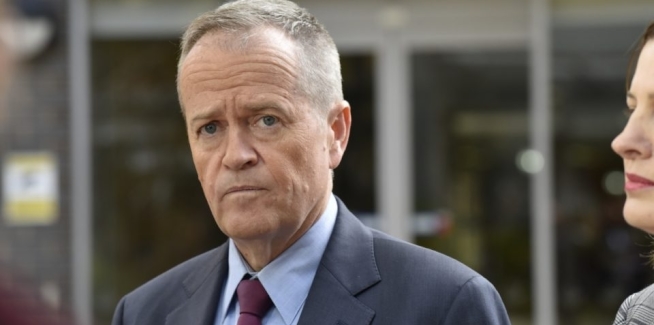The Coalition is set to form government for the third consecutive term, despite some indicators pointing to a Labor victory.
Following the election result, property industry stakeholders have pointed to Labor’s proposed changes to negative gearing and the capital gains tax (CGT) as key determinants of the election result.
The opposition had proposed to limit negative gearing to new properties and halve the CGT to 25 per cent, which according to CEO of the Property Council of Australia Ken Morrison, influenced the decisions of many voters, particularly in light of weakening housing market conditions.
“The election result shows that Australians have rejected risky taxation changes at such an uncertain time in the property cycle,” he said.
“A key plank of the opposition’s policy agenda were big changes to negative gearing and big increases to capital gains tax, and the election result can only be seen as a repudiation of this policy.
“Construction activity is falling sharply, house prices are declining, and economic growth is slowing – this was the wrong policy and the wrong time.”
Mr Morrison continued: “Australians have sent a clear message to all of our parties to leave negative gearing and capital gains tax alone.
“Labor had more than three years and two elections to try and persuade Australians of the merits of their policy, and they have been rejected on both occasions. It’s time to put the issue to rest.”
The chairman of the Property Investment Professionals of Australia, Peter Koulizos, echoed Mr Morrison’s sentiment, stating that the election result was a sign that many Australians voted to protect their “most expensive asset”.
“Labor’s policy to restrict negative gearing and reduce the concession on [CGT] was always poor, but especially so in a mostly underwhelming property market environment,” Mr Koulizos said.
“Creating an us and them campaign by classifying all landlords as ‘greedy’ also did the opposition no favours when the vast majority of property investors only own one property and are just trying to improve their financial futures.”
Executive chairman of Yellow Brick Road (YBR) Mark Bouris also weighed in, stating that Labor's proposals would have further entangled investors, with investment activity already curtailed by regulation.
"We have had enough changes to the regulatory environment such that the investor market has been muted and - as a matter of fact- house prices and investor property prices have actually been decreasing over the past 18 months and the proposal of the Labor party to get rid of negative gearing, in my view, would have turbocharged that decline," he told Mortgage Business.
The Property Council CEO urged the Coalition to keep its policy framework for housing “front and centre” of its agenda over the coming term, including its commitment to improving housing affordability for first home buyers (FHBs) through the First Home Loan Deposit Scheme.
“We look forward to the Coalition’s promised help for first home buyers, and investment in nation-building and city-shaping infrastructure projects, which will drive productivity and improve liveability,” he said.
“There are challenges ahead in the property industry, especially in the residential construction sector, which is slowing.
“The government needs to prioritise measures that will boost confidence and deliver certainty for one of the big engines of the Australian economy.”
Also commenting following the election result, chairman of the Community Housing Industry Association (CHIA) Michael Lennon noted the group’s commitment to working with the Coalition to address the “housing affordability crisis”.
“After a hard-fought campaign in which housing featured prominently, CHIA looks forward to working closely with the new government to address Australia’s far-reaching housing affordability crisis,” Mr Lennon said.
“This critically affects not only aspiring first home owners, but also many low-waged workers and vulnerable households doing it tough in often expensive and unsuitable private rental housing.”
Mr Lennon also acknowledged the work initiated by the last Coalition government’s Affordable Housing Working Group under then-treasurer Scott Morrison, which led to the establishment of the National Housing Finance Investment Corporation (NHFIC).
“The NHFIC has already had an impact by enabling community housing organisations to refinance existing loans, with considerable resulting savings through lower interest charges.”
The Financial Services Council (FSC) has also congratulated the Morrison government on its re-election and has called for “strong leadership” and a “transparent policy agenda” with regards to matter concerning reform in the financial services industry.
“Some of the biggest decisions Australians make in life, such as buying a house, starting a family, choosing a superannuation fund, are all supported by the financial services sector, which is the largest sector of our economy, contributing almost 10 per cent to GDP,” CEO Sally Loane said.
“The government has been given a mandate to work with the sector to restore consumer and business confidence following a challenging and difficult period.”
The matters of policy priority highlighted by the FSC include:
- A commitment to work carefully and closely with the industry to develop all relevant policy changes, particularly the responses to the Hayne royal commission into financial services
- Introducing a comprehensive product rationalisation strategy to reduce inefficiency and costs from legacy financial products
- Appropriate and sustainable design of a Compensation Scheme of Last Resort along with a commitment to strengthen the licensing regime
- Abolish non-resident withholding tax for investments in the Asia Region Funds Passport
- One regulatory regime for financial advisers, streamlining the Tax (Financial) Adviser requirements into the FASEA framework
- A fair and competitive default superannuation framework where individuals only default once.
“The FSC urges the Liberal-National government and the Parliament to prioritise and consult with the sector on these matters,” Ms Loane added.
“We look forward to working with the new government to develop long-term policies that benefit Australians at the most critical times in their lives and working constructively with the opposition.”
[Related: Election 2019: What to expect from the new government]

